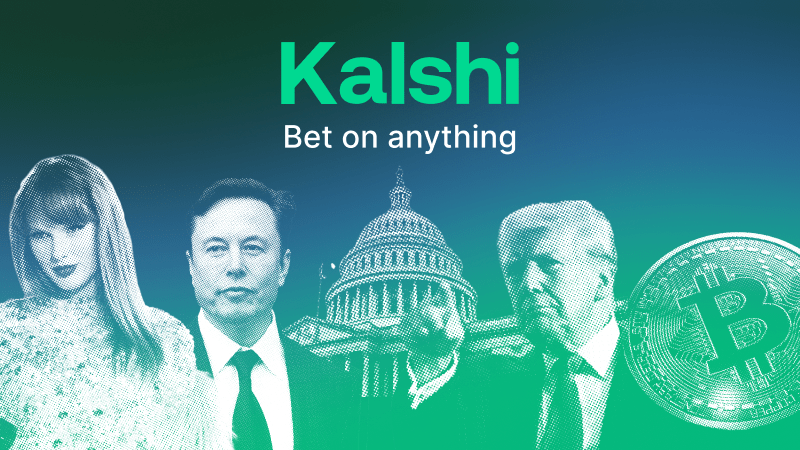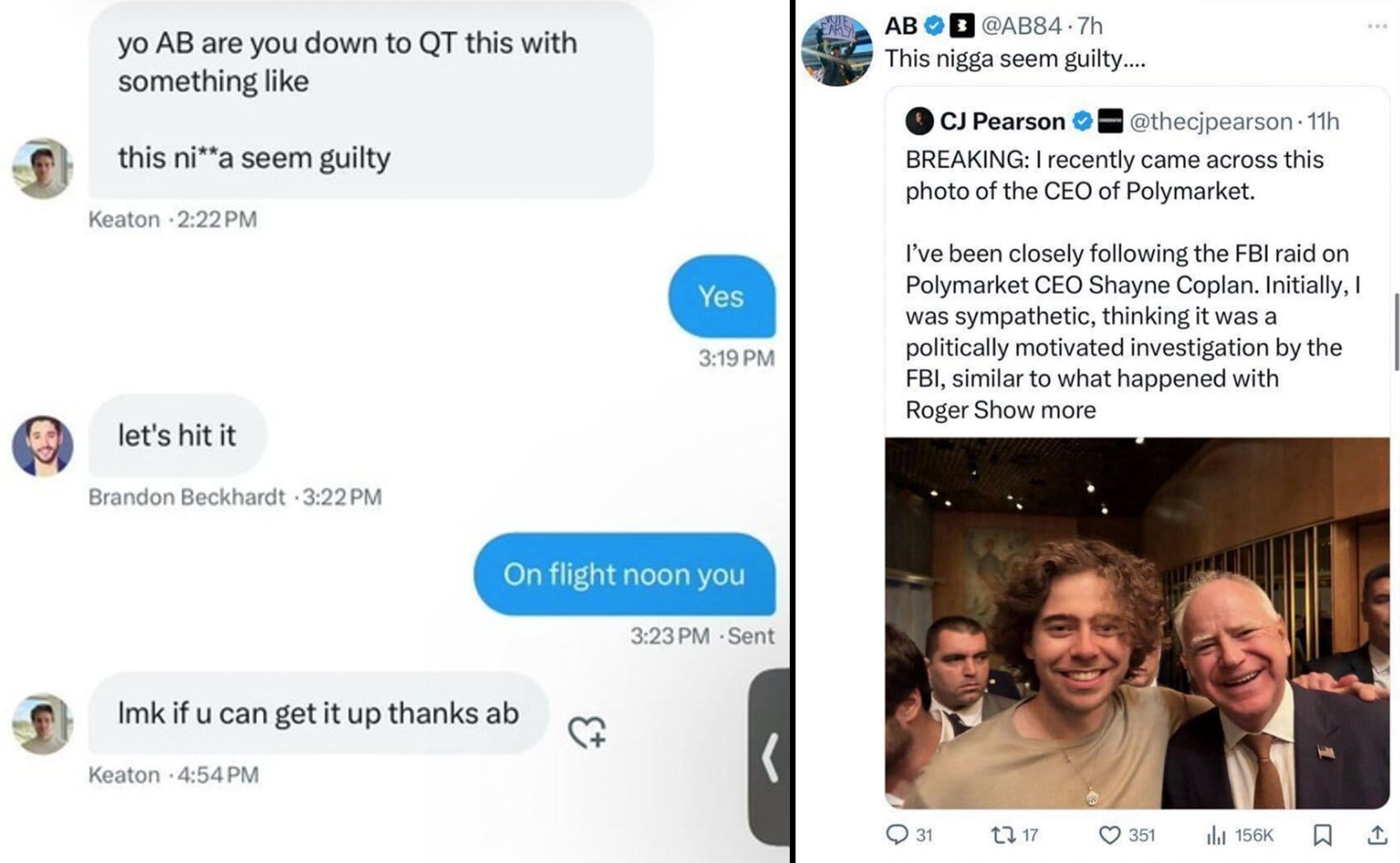Kalshi's Playbook: Allegedly Paying Ex-NFL Star Antonio Brown to Bash Polymarket CEO After FBI Raid

In the high-stakes world of prediction markets, where companies vie to predict everything from election outcomes to market trends, a recent incident has stirred significant controversy. Following an early morning FBI raid at the SoHo apartment of Polymarket CEO Shayne Coplan on November 13, 2024, actions by a competitor, Kalshi, have come under scrutiny.
The raid itself was part of a broader Department of Justice investigation into Polymarket, which had previously faced regulatory challenges. In 2022, Polymarket settled with the CFTC, agreeing to a $1.4 million fine for operating without approval as a designated contract market (DCM). Since then, Polymarket has restricted US users from creating accounts, though the specifics of the DOJ's investigation remain unclear.
The Alleged Influence Operation
In the wake of the raid, sources close to the matter and various screenshots from Pirate Wires suggest that Kalshi, a direct competitor to Polymarket, orchestrated a campaign to tarnish Polymarket's reputation. This campaign allegedly involved paying social media influencers to propagate narratives of illegal activities by Polymarket and its CEO.

Notably, Keaton Inglis and Brendan Beckhardt from Kalshi's growth and strategic teams respectively, appear in screenshots from a group chat where they solicited former NFL star Antonio Brown to tweet negatively about Coplan. Brown, with his significant following on X, complied by retweeting content that suggested Coplan's guilt.
Furthermore, offers were extended to journalists like Elijah Schaffer from The Gateway Pundit to write what was described as a "hit piece" against Polymarket for a fee of $3,500. Schaffer's claim, although not independently verified, adds another layer to the narrative of a coordinated attack.
Influencers like Arynne Wexler and the right-leaning meme account Clown World were also part of this strategy. Wexler, with her substantial following, posted about the legality of using platforms like Polymarket versus Kalshi, subtly promoting the latter's compliance with US regulations. Clown World's posts leaned heavily on humor and memes to cast Polymarket in a negative light, all while subtly promoting Kalshi's legitimacy.
The Regulatory Landscape
The backdrop to this corporate skirmish is the evolving regulatory environment for prediction markets in the US. Kalshi, unlike Polymarket, had received the CFTC's nod to operate as a DCM for non-political events in 2020. However, its ambitions to expand into political betting faced hurdles when the CFTC initially denied its application in 2023. A subsequent legal battle saw Kalshi winning the right to offer such contracts in 2024, marking a significant turning point in the industry.
This regulatory victory for Kalshi could have intensified the competition, possibly prompting the alleged smear campaign against Polymarket, which remains barred from US operations due to its earlier regulatory missteps.
The actions attributed to Kalshi, if proven true, raise serious ethical questions about corporate conduct in the tech and finance sectors. The manipulation of public perception through influencers and media, without transparent disclosure of sponsorship, could potentially breach advertising standards and lead to legal repercussions under current marketing laws.
This situation underscores the fragility of reputation in the digital age, where narratives can be shaped by financial incentives rather than factual reporting. The implications for market integrity and consumer trust are profound, potentially leading to calls for stricter regulations on how companies can influence public opinion, especially in sectors as sensitive as financial markets.
As of now, Kalshi and the implicated influencers have not responded publicly, leaving many details shrouded in speculation.
More Bitcoin and Crypto News:
- Microstrategy Leads Corporate Bitcoin Holdings With 65 Billion Treasury
- How Fetch Ai Is Shaping The Future Of Decentralized Ai
- Hackers Exploit Ethereum Smart Contracts To Evade Detection In Malicious Npm Packages
- French Police Rescue Crypto Millionaires Father In Dramatic Raid
- Metamask Adds Native Bitcoin Support To Expand Multichain Wallet

